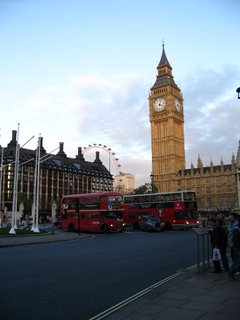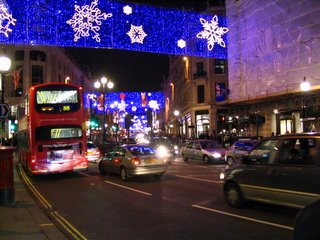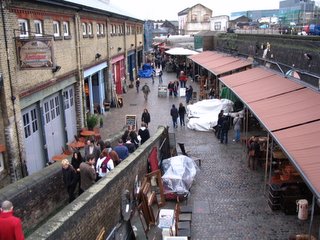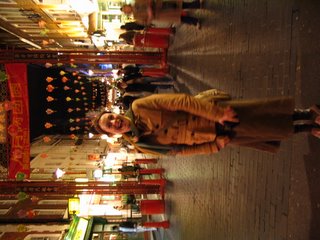As I'm completing another book on microfinance called the microfinance revolution (great book if you ever want to learn about the concept!), I take a pause to ponder about what I heard yesterday in the Old Building on LSE campus. John Ralston Saul is in town and he likes to give his opinion... It's a refreshing look on contemporary politics and more specifically on the collapse of globalism (he defines this as making all policy decisions in the prism of economics). He makes various valid points and I expected his diatribe to center on more controversial subjects but in fact, he had a very logical and pragmatic approach to many of the issues relating to today's problems. I fear he has probably been demonished by main stream media who see him as an anti-globaliser which is not a necessarily bad thing (it is always good to question the foundations of our society... my supervisor for my thesis always tells me to question what everyone holds as obvious because nothing is obvious). Here are a few of his main points:
1) Trade has increased by over 30 times in the last 25 years but global wealth has not. At best, it has increased at a mediocre rate compared to historical trends... Why?
2) Globalism is the belief that through the prism of economic decision making, all policies should be broken down to the effect on the GDP and trade and not on the human repercussions of decisions. There exists many examples of countries having adopted the strictest interpretation of this (such as Argentina, New Zealand, Malaysia). They have all collapsed in some way and recinded on their globalism experiment. China and India are definitely not examples of globalism as they have adapted some of the economic theory and melted into their own social theories.
3) Free trade has in fact freed the multinationals from transacting in most countries around the world. It has not brought increased wealth to the participants other than perhaps the headquarters (often located in the West, more specifically, USA). The multinationals have vertically integrated operations meaning they can purchase and transact in commodities, wages and land at minimal cost in the value chain driving down world prices. This trend predates capitalism and is called mercantalism or the creation of monopoly or oligopoly through the control of important resources.
4) John Ralston Saul believes that globalism is collapsing and western leaders are not seeing the writing on the wall or are perhaps in denial. However, there are signs of encouragement with leaders agreeing on non-economic issues such as the anti-land mine treaty, the international court of justice and the historical cultural international agreement taking cultural goods and services out of the jurisdiction of the WTO. One country has refused to ratify all three. Hint: they are also the biggest promoters of globalism. This isn't bashing, it's just a fact.
5) Globalism has done an about face with previous believers in free trade asking for a closing or tariff increase on goods being imported from China and India. This hypocritical attitude only diminishes the globalism movement.
6) Economics needs a more human face given it has been dominated in the last 25 years by number crunchers and less by philoshopical economists who believe that internationalism is needed and can create good values and international cooperation in fighting a series of problems including poverty, taxation, pollution and health and education concerns.
7) We are living in troubled times where globalism is slowly being driven from front page news but we are unsure about what will replace it. This period of uncertainty will lead to good and bad experiments and could lead to more nationalism, racism and potentially war. If we are enlightened, we can come out with a better solution which provides more fair, equitable distribution of wealth and sees wealth increased by 30 times in the next 25 years in a sustainable measure (both socially and environmentally). There are positive signs as the 9/11 events have given strength to our leaders to start to question the accepted positions and to fight for certain social policies and international conventions unrelated to economics.
Although his views are sometimes simplistic (you may have talked about some of these issues over the water cooler), you will find that this view of the world is very Canadian and in response to this, I think the world really could use a more Canadian approach to these issues because it appears the balance, sensible approach. And the debate continues...
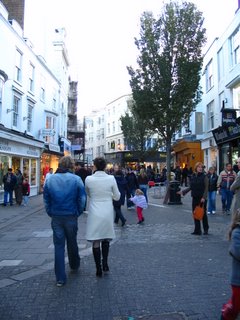
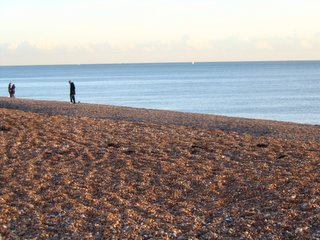 I am trying not to yawn too hard. After 2 nights of clubbing in Brighton, UK, it is hard to stay up and work on my case to hand in next week. I also have to prepare for two interviews for my research paper this week but I will wait till tomorrow to work on this.
I am trying not to yawn too hard. After 2 nights of clubbing in Brighton, UK, it is hard to stay up and work on my case to hand in next week. I also have to prepare for two interviews for my research paper this week but I will wait till tomorrow to work on this. 